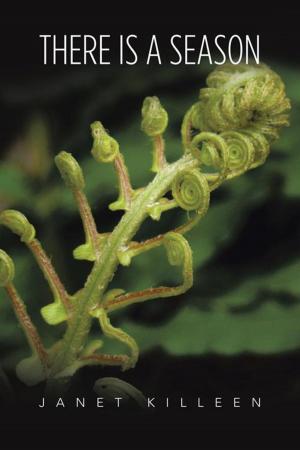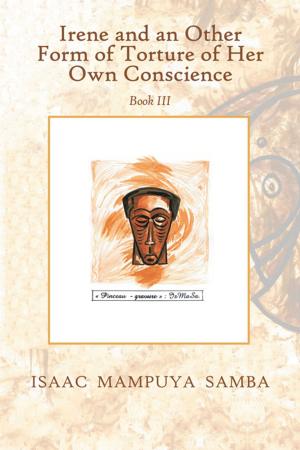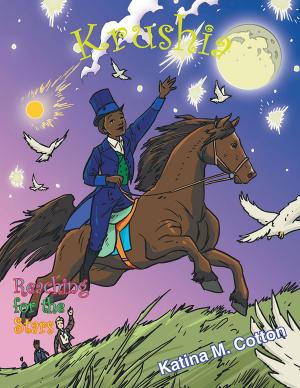| Author: | Michael Payne | ISBN: | 9781477250853 |
| Publisher: | AuthorHouse UK | Publication: | December 18, 2012 |
| Imprint: | AuthorHouse UK | Language: | English |
| Author: | Michael Payne |
| ISBN: | 9781477250853 |
| Publisher: | AuthorHouse UK |
| Publication: | December 18, 2012 |
| Imprint: | AuthorHouse UK |
| Language: | English |
Sunrise (03/01/09) A lotus flower seed is rooted then grows from the darkness of the mud at the bottom of the lake. Simply through the power of it`s pure intention it reaches the surface of the lake then explodes into flower through the powerful blessings of the suns rays... Like unto a lotus you have the seed of enlightenment. Simply through the power of pure intention you will realise the way things really are, you will realise reality exploding within your own experience of silence within this moment...
Payne channels the sages of Chinese, Japanese and Indian lore in preaching meditation for a new generation of spiritual seekers.
Paynes book seems to advertise a radical, new, edgy, anti-establishment project. Yet in some ways, thats far from the truth, since Payne peddles religious ideas whose roots stretch back thousands of years. For nearly a decade and a half, Payne has practiced the ancient art of meditation, which he now sees as a path toward peace and fulfillment. Thus, in around 60 short sketchessome poetry, some prosehe sets out to explain some of the many lessons hes learned while on his spiritual journey. As Payne notes, many of the lessons echo those taught by the great saints of Asian religion: Buddha, Lao Tsu, Shantideva and Bodhidharma. Payne teaches that attachment to things of this world is frustrating because those things are mere images that may change and pass away. Our grasping for these images is fruitless and pointless. Even the self is an illusion; In reality I does not exist, Payne writes, I, me and mine are wordless words. In the end, our misconceptions bring us pain. Yet meditation, which puts us in touch with reality, is a methodical forgetting of all this falseness: Meditation is a simple process of unlearning everything you have been forced to learn by others. The great value of Paynes slim volume is that he expresses such old lessons in sleek, punchy, modern prose. Those intimidated by classic Buddhist texts such as the Lotus Sutra might find Paynes contemporary message refreshing and enlightening. Perhaps the only drawback here is that in trying to express paradoxical truths, Payne sometimes falls back on stilted idioms: The world has become a business with its [sic] own board of directors acting like gods within the balance of things, only it is the minds of those within the world that are in the balance. Metaphors can only hold so much water.
Ancient teachings helpfully repackaged for a modern audience.
- Kirkus Book Review
Sunrise (03/01/09) A lotus flower seed is rooted then grows from the darkness of the mud at the bottom of the lake. Simply through the power of it`s pure intention it reaches the surface of the lake then explodes into flower through the powerful blessings of the suns rays... Like unto a lotus you have the seed of enlightenment. Simply through the power of pure intention you will realise the way things really are, you will realise reality exploding within your own experience of silence within this moment...
Payne channels the sages of Chinese, Japanese and Indian lore in preaching meditation for a new generation of spiritual seekers.
Paynes book seems to advertise a radical, new, edgy, anti-establishment project. Yet in some ways, thats far from the truth, since Payne peddles religious ideas whose roots stretch back thousands of years. For nearly a decade and a half, Payne has practiced the ancient art of meditation, which he now sees as a path toward peace and fulfillment. Thus, in around 60 short sketchessome poetry, some prosehe sets out to explain some of the many lessons hes learned while on his spiritual journey. As Payne notes, many of the lessons echo those taught by the great saints of Asian religion: Buddha, Lao Tsu, Shantideva and Bodhidharma. Payne teaches that attachment to things of this world is frustrating because those things are mere images that may change and pass away. Our grasping for these images is fruitless and pointless. Even the self is an illusion; In reality I does not exist, Payne writes, I, me and mine are wordless words. In the end, our misconceptions bring us pain. Yet meditation, which puts us in touch with reality, is a methodical forgetting of all this falseness: Meditation is a simple process of unlearning everything you have been forced to learn by others. The great value of Paynes slim volume is that he expresses such old lessons in sleek, punchy, modern prose. Those intimidated by classic Buddhist texts such as the Lotus Sutra might find Paynes contemporary message refreshing and enlightening. Perhaps the only drawback here is that in trying to express paradoxical truths, Payne sometimes falls back on stilted idioms: The world has become a business with its [sic] own board of directors acting like gods within the balance of things, only it is the minds of those within the world that are in the balance. Metaphors can only hold so much water.
Ancient teachings helpfully repackaged for a modern audience.
- Kirkus Book Review















